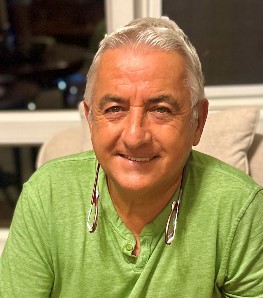From ENGINEERING ELECTROMAGNETICS to ELECTROMAGNETIC ENGINEERING: Teaching/Training Next Generations
The role of Electromagnetic (EM) fields in our lives has been increasing. In areas where EM fields have critical importance are communication, remote sensing, integrated command/ control/surveillance systems, intelligent transportation systems, medicine, environment, education, marketing, and defense. We have witnessed the transformation from Engineering Electromagnetics to Electromagnetic Engineering for the last few decades after being surrounded by EM waves everywhere. Among many others, EM engineering deals with a broad range of problems from antenna design to EM scattering, indoor–outdoor radio wave propagation to wireless communication, radar systems to integrated surveillance, subsurface imaging to novel materials, EM compatibility to nano-systems, electroacoustic devices to electro-optical systems, etc. The range of the devices we use in our daily lives has extended from DC to Terahertz frequencies. We have had large-scale (kilometers-wide) and small-scale (nanometers) EM systems. Many of these systems are broadband and digital and must operate nearby, which results in severe EM interference problems. Engineers must take EM issues into account from the earliest possible design stages. This necessitates establishing an intelligent balance between a strong mathematical background (theory), engineering experience (practice), and modeling and numerical computations (simulation). This Distinguished/keynote lecture aims to look broadly at current complex EM problems and particular teaching/training challenges confronting wave-oriented EM engineering in the 21st century in a complex computer and technology-driven world with rapidly shifting societal and technical priorities.
Date and Time
Location
Hosts
Registration
-
 Add Event to Calendar
Add Event to Calendar
- New Jersey Institute of Technology (NJIT)
- 154 Summit Street, Newark, NJ 07102
- Newark, New Jersey
- United States
- Building: ECE Center
- Room Number: 202
- Click here for Map
- Contact Event Hosts
-
Dr. Ajay Poddar (akpoddar@ieee.org), Dr. Durga Misra (dmisra@njit.edu), Dr. Anisha Apte (anisha_apte@ieee.org), Dr. Edip Niver (edip.niver@njit.edu)
- Co-sponsored by IEEE AP-S Co-sponsor DL Talk by Dr. Levent Sevgi
Speakers
Levent Sevgi
From ENGINEERING ELECTROMAGNETICS to ELECTROMAGNETIC ENGINEERING: Teaching/Training Next Generations
This Distinguished lecture aims to look broadly at current complex EM problems and particular teaching/training challenges confronting wave-oriented EM engineering in the 21st century in a complex computer and technology-driven world with rapidly shifting societal and technical priorities. The role of Electromagnetic (EM) fields in our lives has been increasing. EM fields have critical importance in communication, remote sensing, integrated command/ control/surveillance systems, intelligent transportation systems, medicine, environment, education, marketing, and defense. We have witnessed the transformation from Engineering Electromagnetics to Electromagnetic Engineering for the last few decades after being surrounded by EM waves everywhere. Among many others, EM engineering deals with a broad range of problems from antenna design to EM scattering, indoor–outdoor radio wave propagation to wireless communication, radar systems to integrated surveillance, subsurface imaging to novel materials, EM compatibility to nano-systems, electroacoustic devices to electro-optical systems, etc. The range of the devices we use in our daily lives has extended from DC to Terahertz frequencies. We have had large-scale (kilometers-wide) and small-scale (nanometers) EM systems. Many of these systems are broadband and digital and must operate nearby, which results in severe EM interference problems. Engineers must take EM issues into account from the earliest possible design stages. This necessitates establishing an intelligent balance between a strong mathematical background (theory), engineering experience (practice), and modeling and numerical computations (simulation).
Biography:
Prof. Dr. Levent Sevgi is a Fellow of the IEEE (since 2009) and the recipient of the IEEE APS Chen-To Tai Distinguished Educator Award (2021). He was with Istanbul Technical University (1991–1998), TUBITAK-MRC, Information Technologies Research Institute (1999–2000), Weber Research Institute / NY Polytechnic University (1988–1990), Scientific Research Group of Raytheon Systems Canada (1998 – 1999), Center for Defense Studies, ITUV-SAM (1993 –1998 and 2000–2002) and with University of Massachusetts, Lowell (UML) MA/USA as a full-time faculty (2012 – 2013), DOGUS University (2001-2014), Istanbul OKAN (2014 - 2021), and ATLAS (2022-2024) Universities. He served four years (2020-2023) as an IEEE AP-S Distinguished Lecturer. Since Jan 2024, he has been the chair of the IEEE AP-S DL Committee. He served one term in the IEEE AP-S AdCom (2013-2015) and one term as a member of the IEEE AP-S Field Award Committee (2018-2019). He had been the writer/editor of the “Testing ourselves” Column in the IEEE AP Magazine (2007-2021), a member of the IEEE AP-S Education Committee (2006-2021), He also served on several editorial boards (EB) of other prestigious journals/magazines, such as the IEEE AP Magazine (2007-2021), Wiley’s International Journal of RFMiCAE (2002-2018), and the IEEE Access (2017-2019 and 2020 - 2022). He is the founding chair of the EMC TURKIYE International Conferences (www.emcturkiye.org).
Levent Sevgi, Professor
Cell: +90 532 599 5090,
ITU – Istanbul Technical University (Emeritus)
Email: lsevgi58@gmail.com & lsevgi@ieee.org
Email:
Address:ITU – Istanbul Technical University, , Istanbul, Türkiye
Agenda
All Welcome!
You do not have to be a member of the IEEE to attend.
Time: 5:00 PM-6:00 PM, Monday, March 03, 2025. A complimentary buffet dinner will be available until 4:45 PM.
Place: New Jersey Institute of Technology (NJIT), Room 202, ECE Center, Newark, NJ. Directions are available at http://www.njit.edu.
Contact Persons: Dr. Ajay Poddar (akpoddar@ieee.org), Dr. Durga Misra (dmisra@njit.edu), Dr. Anisha Apte (anisha_apte@ieee.org), Dr. Edip Niver (edip.niver@njit.edu)

